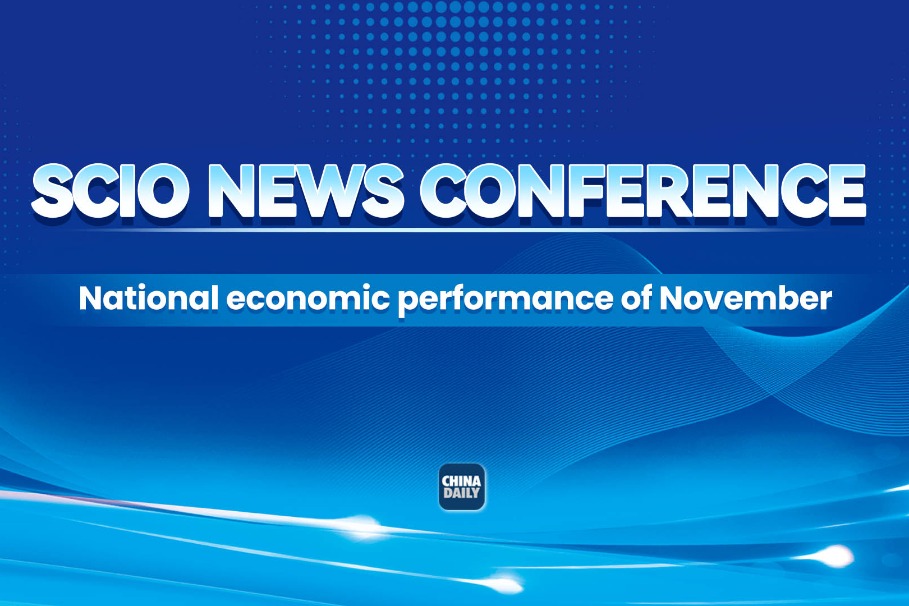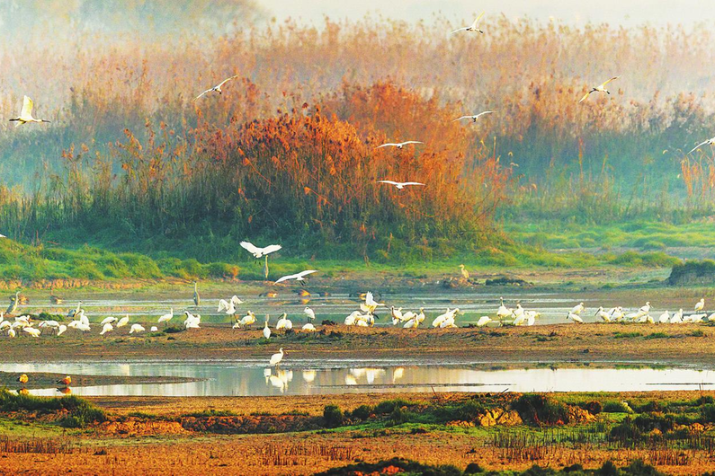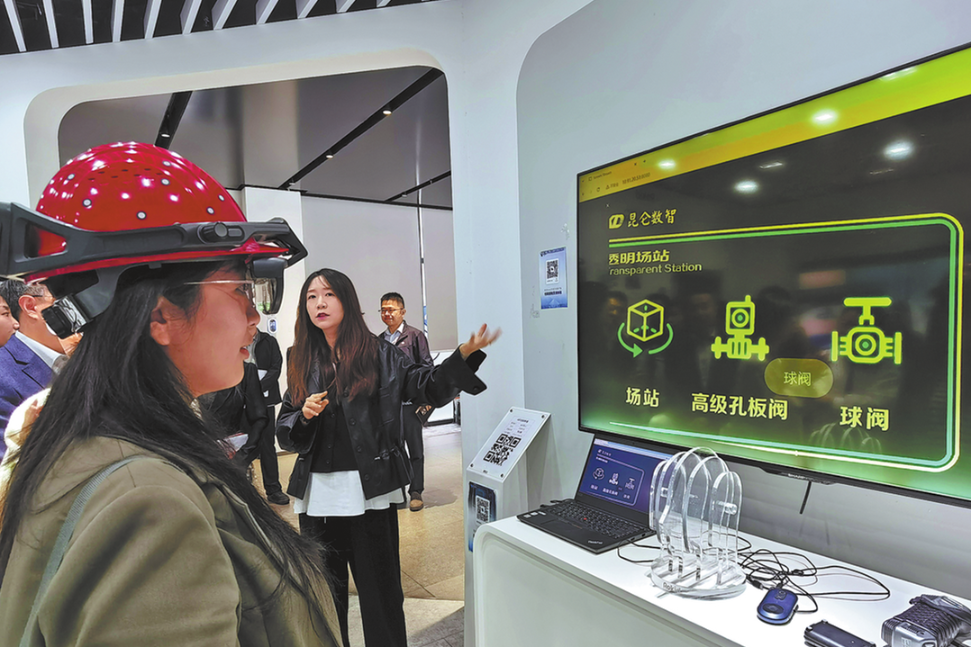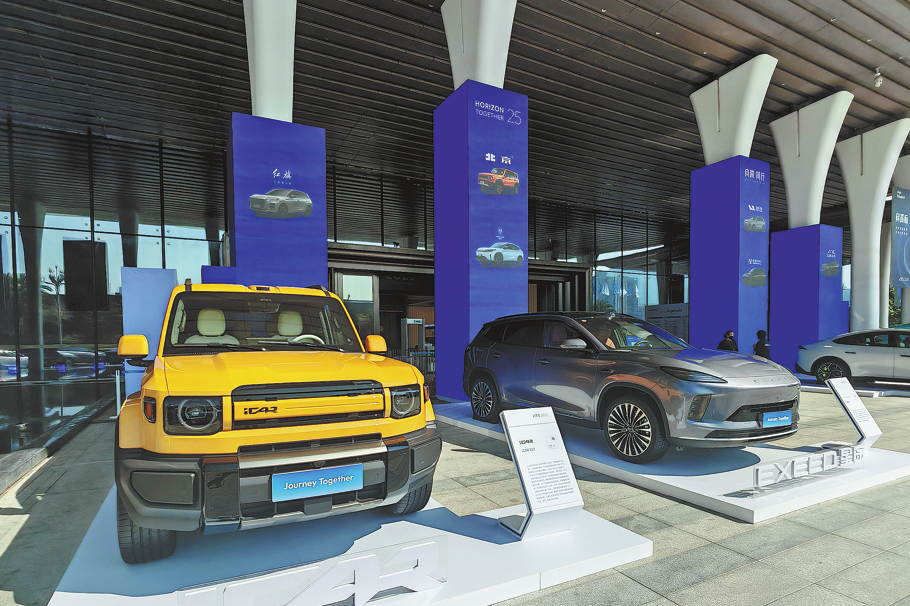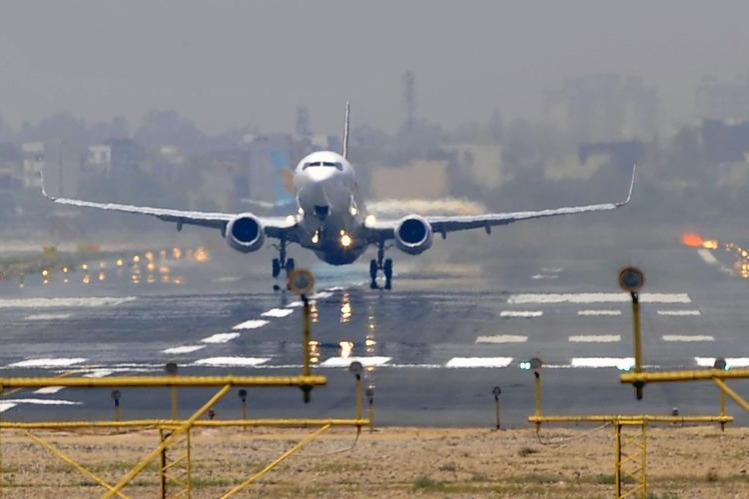Europe missing a golden opportunity

Low-key reaction to Belt and Road forum shows a lack of understanding of the potential benefits this initiative offers
While European consumers and the continent's business community are no doubt, in the main, breathing a huge sigh of relief over the resounding election of Francois Macron as French president, it remains perplexing that the project that will shape the entire global economy for many years to come has still not reached the top of mind awareness. This is China's Belt and Road Initiative, which aims to build a sustainable trading environment across the Asian, European and African continents.
If it isn't "Macron v Le Pen", it is either Brexit or Trump that continue to dominate international and European media headlines.
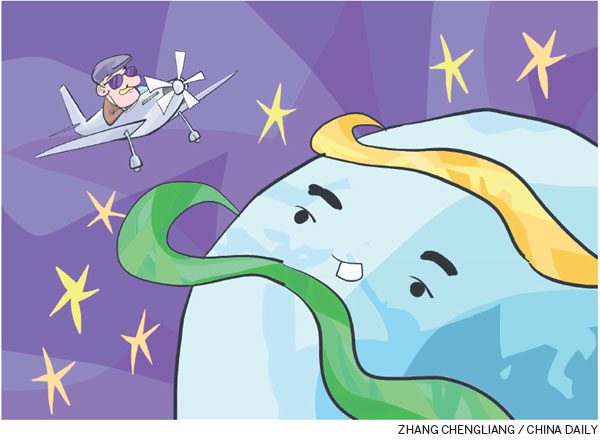
As a result, little knowledge appears to have been gained-or even interest paid - toward this historic and unprecedented economic initiative.
Which is why it will probably surprise many reading this article that a major Belt and Road forum will take place very soon, on May 14 and 15.
Many are probably saying to themselves, and to others around them, "So what is this Belt and Road Initiative and precisely why is this so significant?" In particular, many outside Asia are probably asking themselves why this is so potentially significant for the European economy and why it presents unprecedented opportunities for European business.
So, what is it?
A central plank in Chinese President Xi Jinping's economic strategy, the Belt and Road (previously and still also referred to as the New Silk Road) focuses primarily on massive infrastructure projects to facilitate the return to what is presented as a modern Silk Road, an engine for trade and investment spanning more than 65 countries.
The countries directly affected, mostly between China and mainland Europe, are home to a combined 60 percent of the world's total population. They consume around 75 percent of the world's energy resources and account for 70 percent of global GDP.
Railways, ports and roads drive this initiative, but European transport, communication and related industries should note that the aim is economic development across Europe and not simply Asian integration.
Indeed, the "belt" refers to exactly that, an overland trading route powered by modern, high-tech infrastructure - high speed rail - that connects central and western China deep into mainland Europe.

A second, maritime "road" is also being created to boost trade between coastal Chinese cities and European and African ports.
So what is the significance of the forum on May 14 and 15?
While last year saw some sizeable steps forward, 2017 should herald a near doubling of the levels of investment and project completion. It is, therefore, imperative that European governments and businesses, from all corners of the continent, understand this step-change in impetus and fully engage in the forum.
Key projects are also set to start this year. They include a new network taking in the new port of Baku, in Azerbaijan, and a similar project for the Anaklia deep sea port in Georgia.
But even more directly relevant to the immediate needs of the European economy are developments in high-tech, high-speed rail networks across the Belt and Road area that are set for this year. Not just commodities but far more premium, even luxury, brands will be moving from Europe to China via high speed rail this year as a result of investment and project completion as part of the overall initiative.
This year should also see further significant development of key trans-Eurasian logistics hubs on the Poland-Belarus border and the pivotal port of Piraeus in Greece.
This forum will underline further the significance of this whole initiative. The initial perception was perhaps one of a mere pipeline between Europe and China along which commodity products would be transported. It is high time that more European governments and wider sections of its industrial spectrum woke up to the fact that these new, high-tech, high-speed trade routes offer superb opportunities to transport the highest value-added products and brands.
Industries that should be eyeing these new channels are the European pharmaceutical, chemical, automotive, luxury and even the storage-sensitive food industry.
So what is likely to happen at the forum?
Certainly, this is billed as the biggest diplomatic event of the year in China and possibly across the entire Asia-Pacific region.
The forum will establish just how many countries have benefited so far from this ground-breaking initiative and will also establish how future projects will bring about economic enhancement, and in some cases transformation, to the countries affected.
In effect, this economic forum will use the tangible benefits, current and future, of the Belt and Road Initiative to enhance close political relations across the entire continents of Asia and Europe.
Surely, this is a "must attend" forum for ALL European governments, with their major industrial corporations close in tow.
Sadly, so far the attendance list does not indicate that Europe's more powerful governments and companies have registered nearly enough interest. While a grand total of 29 heads of state have confirmed that they will attend, the Italians remain the solitary representative of the richest club of countries, the G7.
The Italian presence may well have much to do with their geographical proximity to Piraeus and, therefore, their perception of a shorter term benefit in trade in comparison with their fellow European G7 members.
But to say Europe's leading branded goods producers and governments are short-sighted with their apparent non-attendance is a massive understatement.
Registering for this forum is so much more than attending a few meetings in Beijing. It is about registering a far deeper interest in the entire transformation of large parts of the Asian and European economies and clearly committing as a significant stakeholder. As a result, those governments and companies that commit and engage now and most substantially are also likely to be those most rewarded in future.
Attendance at this forum, where political challenges and a clear path ahead need to be addressed, will also afford those present more influence and control over the direction of future development projects.
It is perhaps no surprise to see the governments of major European governments, the British in particular, slow to understand, participate and even commit to major forward-looking economic development projects.
It is, therefore, even more important for European companies, across a range of high end branded sectors such as fashion and clothing in particular, to take the lead and at least monitor very closely the agenda, discussions and outcomes of the forum.
Those European brands keen to penetrate Asia should light up at the prospect of the proposed transformation in distribution and transportation time and cost and the impact this will have on their competitiveness internationally.
And the European business community should accept, above all, that the Belt and Road Initiative will bring about benefits for all those who participate. It is not at all about any one country.
The Belt and Road is a bridge, the like of which the world has never witnessed before, between Europe and Asia, which will contribute considerably toward the harmonious economic and political environment needed across both continents to foster trade and development on an unprecedented scale.
I call on representatives of European governments and European industry to get on a flight to Beijing for May 14 and 15.Miss the forum and you may miss the boat.
The author is a visiting professor at the University of International Business and Economics in Beijing and a senior lecturer at Southampton University. The views do not necessarily reflect those of China Daily.
(China Daily Africa Weekly 05/12/2017 page12)
Today's Top News
- Jimmy Lai found guilty of violating national security law
- Hong Kong court opens session to deliver verdict on Jimmy Lai's case
- China's economy posts steady growth in Nov
- Death toll rises to 16 in Sydney's Bondi Beach shooting
- Firm stance on opening-up wins praise
- World looks to new engines for growth in 2026
















